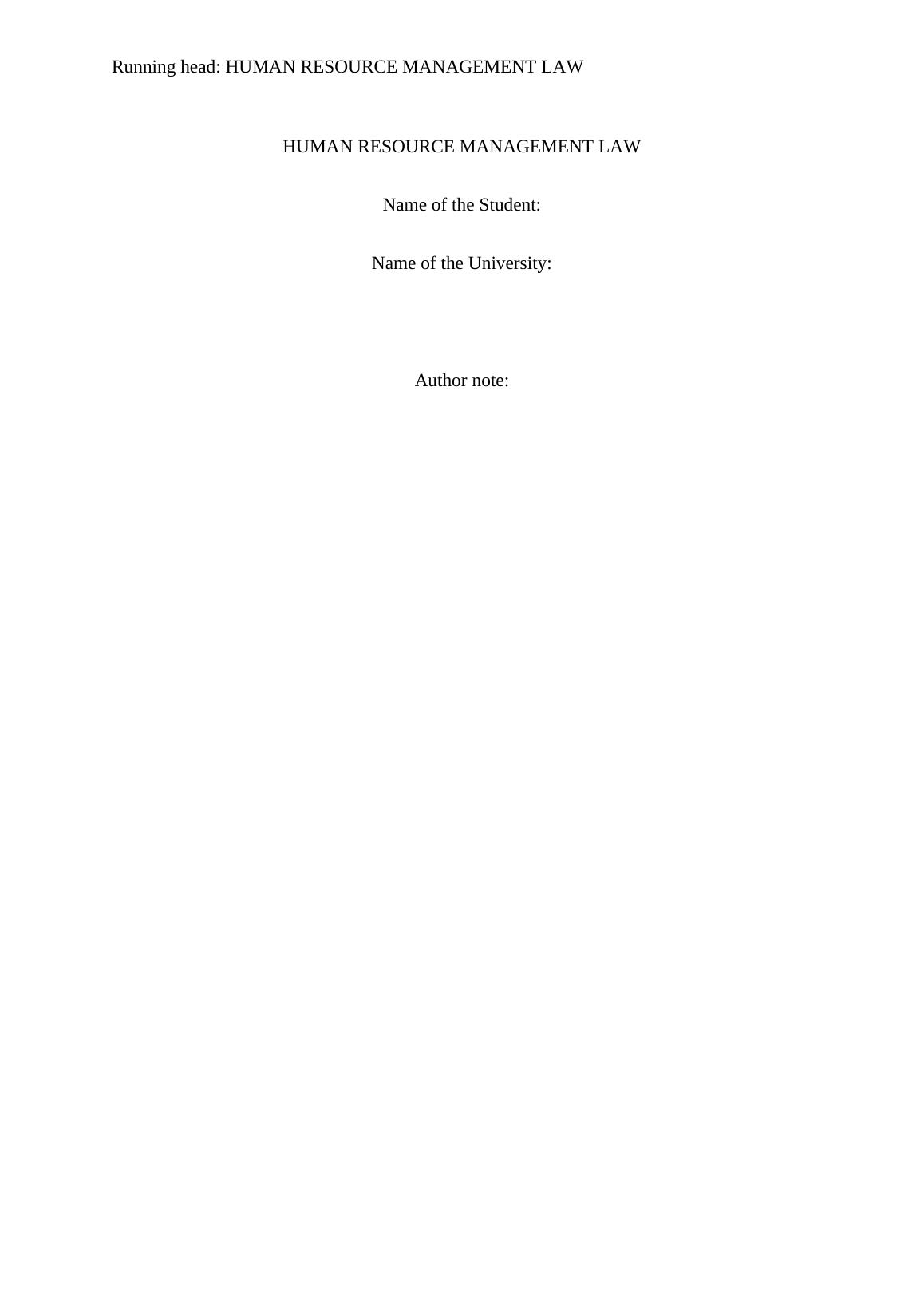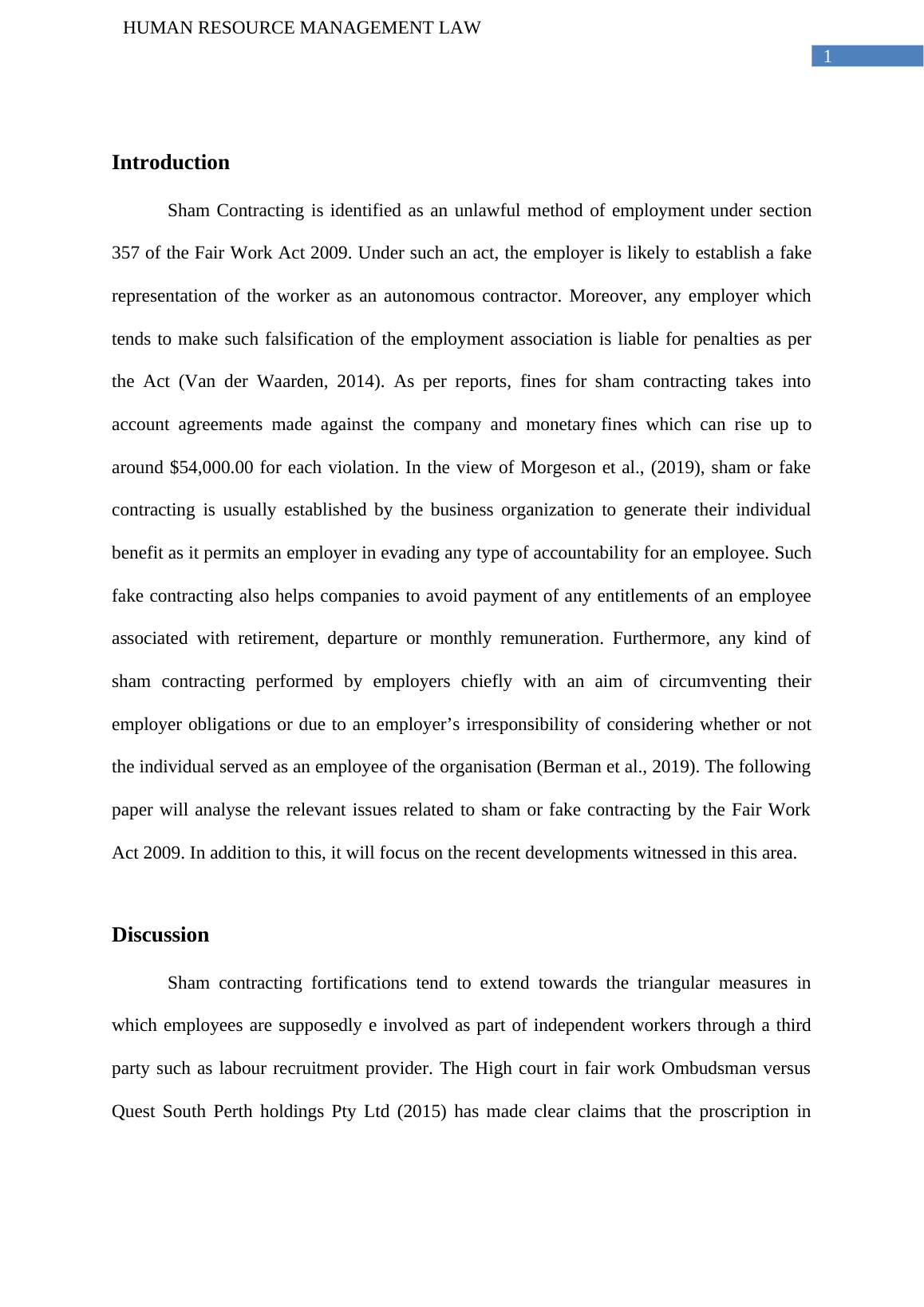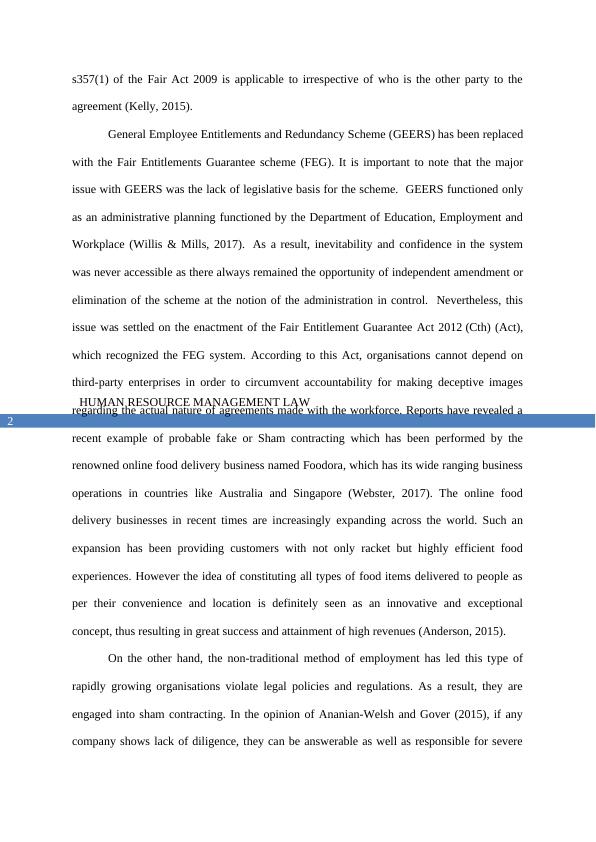Laws and Regulations Every HR Professional Should Know
Added on 2022-09-08
10 Pages2913 Words14 Views
End of preview
Want to access all the pages? Upload your documents or become a member.
Sham Contracting and Fair Work Act 2009 in Australia
|8
|2344
|167
Legal Right to Access Employee Share Scheme: A Workplace Law Case Study
|7
|1890
|401
Workplace Law
|8
|1847
|372
Letter of Offer Template for Human Resource Advisor Position at The University Of Green Hill
|4
|1213
|265
Uber BV v. Aslam: Case Analysis on Employment Rights
|7
|1437
|375
Labour Law: Employee vs Independent Contractor, Casual to Permanent Conversion, Contractor's Agreement, Deduction from Salary, Additional Working Hours, Gender Pay Equity, Duty to Obey Employer Orders
|17
|3777
|139



